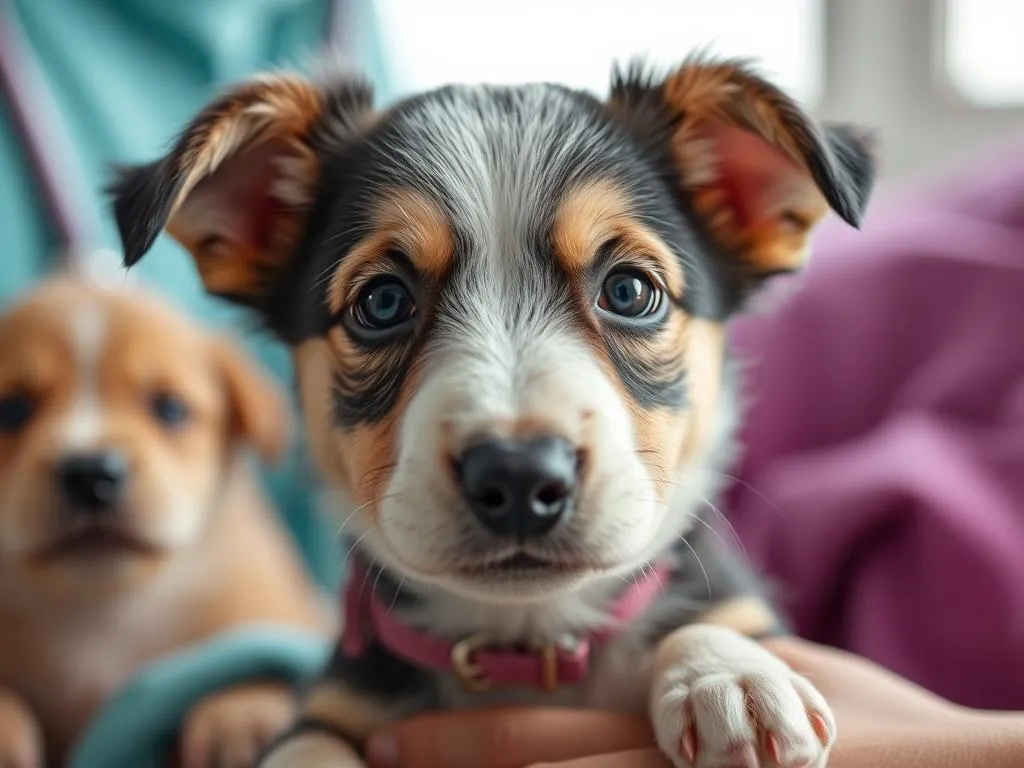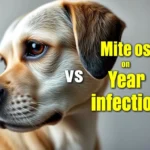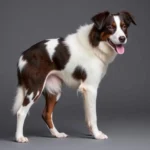
Introduction
Hiccups are an involuntary contraction of the diaphragm muscle, which is followed by a sudden closure of the vocal cords, producing the characteristic “hic” sound. While most people are familiar with this phenomenon, it can also occur in dogs, particularly puppies. Why do puppies hiccup? This is a common question among pet owners, especially since hiccups seem to occur more frequently in younger dogs than in their adult counterparts. Understanding the reasons behind this behavior can help alleviate concerns and enhance our knowledge of canine health.
In puppies, hiccups can be quite common and are generally nothing to worry about. This article aims to address common questions pet owners have regarding puppy hiccups, providing vet-backed answers and insights into their causes, implications, and remedies.
Understanding Hiccups in Puppies
What Are Hiccups?
Hiccups result from an involuntary contraction of the diaphragm. When this muscle spasms, it causes a quick intake of breath that is suddenly halted by the closure of the vocal cords, leading to the distinctive sound. Hiccups can vary in frequency and duration; they might last for a few seconds to several minutes.
In puppies, hiccups can be more frequent due to their rapid growth and development. As they explore their surroundings and engage in vigorous play, their bodies may react with these involuntary contractions.
Why Do Puppies Hiccup?
There are several reasons why puppies may hiccup, and understanding these can help pet owners distinguish between normal behavior and potential health concerns.
-
Normal Development: Hiccups are a natural part of a puppy’s growth process. Just like human infants, puppies experience hiccups as their bodies develop and their diaphragm muscles become stronger and more coordinated.
-
Excitement and Play: When puppies engage in spirited play, their excitement can lead to increased breathing and, consequently, hiccups. The excitement can stimulate the diaphragm, causing it to contract involuntarily.
-
Eating and Drinking Habits: If a puppy eats or drinks too quickly, it can ingest air along with its food or water. This excess air can irritate the diaphragm, resulting in hiccups.
-
Temperature Changes: Sudden changes in temperature, such as moving from a cold environment to a warm one, can also trigger hiccups in puppies.
When to Worry: Signs of Concern
Normal vs. Abnormal Hiccups
While hiccups are generally harmless, it’s essential to differentiate between typical occurrences and those that may indicate a more serious issue.
-
Duration and Frequency: Normal puppy hiccups usually last only a few minutes and occur sporadically. If hiccups persist for an extended period (more than 30 minutes) or occur frequently throughout the day, this may warrant further investigation.
-
Associated Symptoms: If your puppy exhibits other concerning symptoms alongside hiccups, such as lethargy, vomiting, or difficulty breathing, this could indicate an underlying health issue that requires a vet’s attention.
Health Conditions Linked to Hiccups
In rare cases, persistent hiccups may be associated with health problems. Some conditions to consider include:
-
Gastrointestinal Issues: Certain gastrointestinal disorders, such as bloat or gastroesophageal reflux, can cause hiccups. If your puppy seems uncomfortable or bloated, consult your veterinarian.
-
Respiratory Problems: Respiratory conditions, such as kennel cough or allergies, may lead to hiccupping as the body reacts to irritation in the throat or lungs.
-
Neurological Concerns: Although rare, persistent hiccups could signal neurological concerns. If your puppy displays other unusual behaviors or symptoms, it’s essential to seek veterinary advice.
How to Help Your Puppy
Quick Remedies for Hiccups
When your puppy experiences hiccups, there are a few simple methods you can try to help alleviate the situation:
-
Gentle Massage: Gently massaging the area around the diaphragm can help soothe the muscle and potentially reduce hiccups. Use a light touch and apply gentle pressure in a circular motion.
-
Calm Environment: Creating a calm and quiet environment can help your puppy relax, especially if their hiccups are due to excitement or overstimulation. Consider providing a cozy space where they can unwind.
-
Hydration: Ensuring your puppy stays hydrated can help minimize the occurrence of hiccups. Offer fresh water regularly, and encourage slow drinking to prevent gulping air.
When to Consult a Vet
While hiccups are typically harmless, some signs indicate it may be time to consult a veterinarian.
-
Signs That Require Immediate Attention: If your puppy experiences prolonged hiccups (lasting more than 30 minutes), shows signs of distress, or exhibits other concerning symptoms, such as vomiting, lethargy, or difficulty breathing, contact your veterinarian promptly.
-
Preparing for the Vet Visit: Keep track of your puppy’s hiccup episodes, noting their frequency, duration, and any accompanying symptoms. This information can assist your vet in assessing your puppy’s condition.
Prevention Tips
Feeding Practices
Preventing hiccups can often be achieved through careful feeding practices:
-
Controlled Feeding: Implement portion control and consider using slow-feeding bowls designed to encourage slower eating. This can help your puppy avoid gulping air and reduce the likelihood of hiccups.
-
Quality of Food: Providing high-quality dog food that supports digestive health can minimize gastrointestinal issues, potentially reducing hiccup occurrences.
Managing Excitement
Excess excitement can lead to hiccups, so managing your puppy’s activity levels is essential:
-
Balanced Playtime: Ensure that playtime is balanced and structured. Allow for breaks and periods of calm to help prevent overstimulation.
-
Routine Establishment: Establishing a consistent routine for feeding, play, and rest can help your puppy feel more secure and reduce anxiety levels, which in turn may help minimize hiccups.
Conclusion
In summary, hiccups in puppies are typically harmless and often a normal part of their development. They can stem from various factors, including excitement, eating habits, and temperature changes. While hiccups are generally nothing to worry about, it’s crucial for pet owners to remain vigilant and seek veterinary advice if hiccups persist or are accompanied by concerning symptoms.
If you have concerns about your puppy’s hiccups or overall health, don’t hesitate to reach out to your veterinarian for guidance. Hiccups may be a common occurrence, but understanding their causes and implications is essential to ensuring your puppy’s health and well-being.









